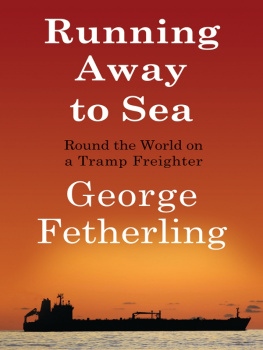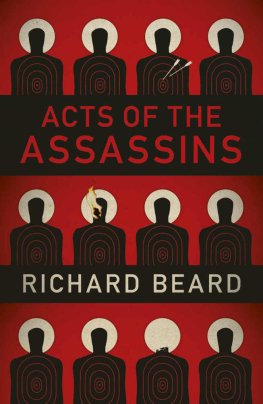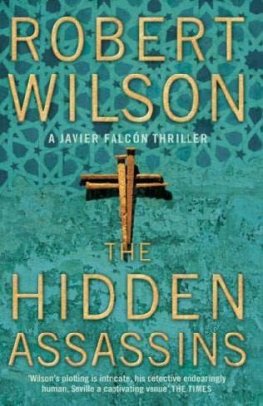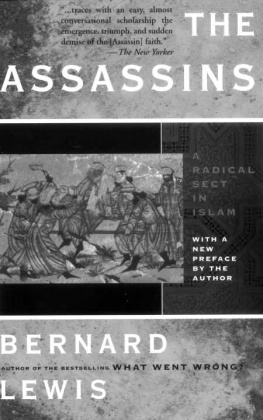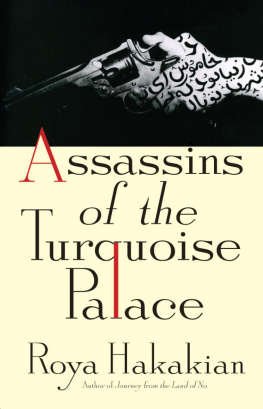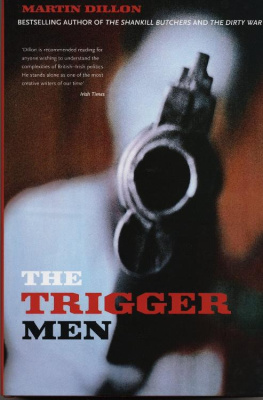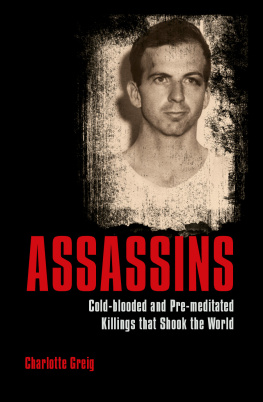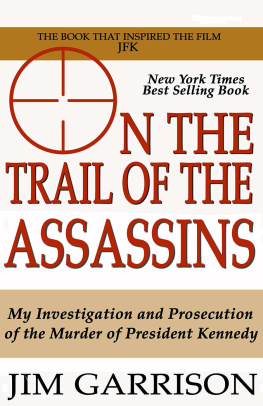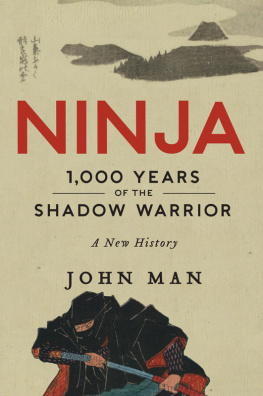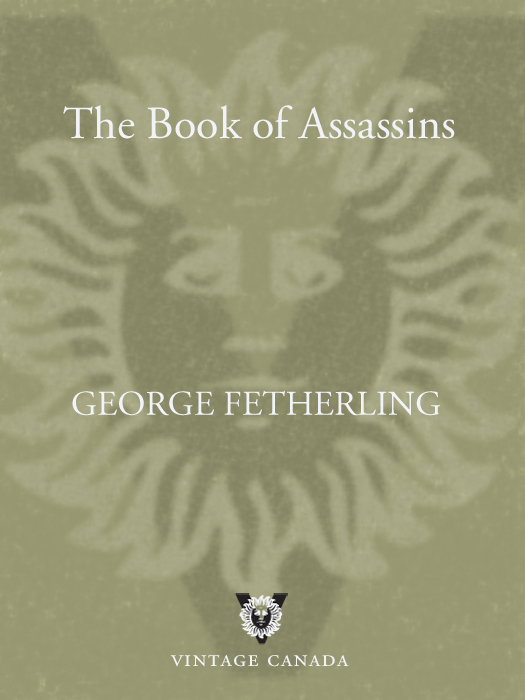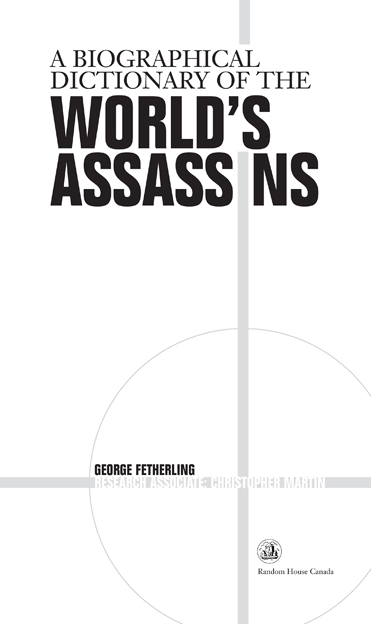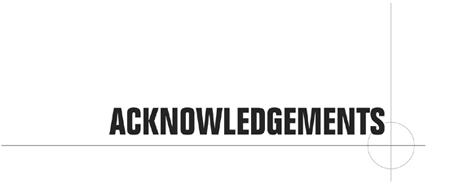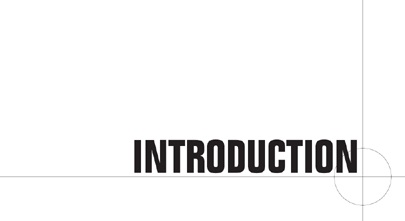Copyright 2001 by George Fetherling
All rights reserved under International and Pan-American Copyright Conventions. No part of this book may be reproduced in any form or by any electronic or mechanical means, including information storage and retrieval systems, without permission in writing from the publisher, except by a reviewer, who may quote brief passages in a review. Published in 2001 by Random House Canada, a division of Random House of Canada Limited.
Random House Canada and colophon are trademarks.
Canadian Cataloguing in Publication Data
Fetherling, George, 1949
A biographical dictionary of the worlds assassins
eISBN: 978-0-307-36909-3
1. Assassins Biography Dictionaries. I. Title.
HV 6245. F 47 2001 364.15240922 C 00-932457-7
Visit Random House of Canada Limiteds website: www.randomhouse.ca
v3.1
This book would not have come about without research tips and advice from Tim Brook, translation assistance from Stefano Cossu, Cathy Hanson and Ralf-Dieter Schindler and editorial criticism from Cynthia Brouse, William Davies, Rhona Sawlor and Daniel Williman. Special thanks to the supportive and unflappable Anne Collins, who made the project possible.
Contents
There are many thousands of books on particular assassinations and on the subject in general, but nearly all of them deal with the victims, not the perpetrators. This is overwhelmingly the case even in the roomful of volumes on the John Kennedy assassination, the instance in which the most attention has been paid to the presumed killer or the hunt for substitute suspects. Until now, however, there has been no single reference book solely on assassins themselves, in various periods and countries, for the convenience of students, researchers, historians, criminologists, psychologists and general readers interested in true crime. This is ironic in a sense, because a certain kind of assassin, as the reader will see quite readily, kills in order to be ensured a place in history, only to be rejected by the historical record in the chaos that the killing sets in motion.
Ask yourself this question: Who killed the Archduke Ferdinand in 1914, thus igniting the First World War, in which ten million people died and twenty million were wounded and which redrew the map of Europe, dealt the coup de grce to European colonialism, made the United States a world powerand led inevitably, unstoppably, to the Second World War? That person, arguably one of the most influential of the twentieth century, survived until 1918 but his name has been forgotten by all but a few. (Youll find the answer by consulting Franz-Ferdinand in the Index of Victims at the end of this book.) Similarly, who carried out Stalins orders and killed Leon Trotsky at his well-guarded compound in Mexico City in 1940? This was surely one of the most important events in the rise and fall of communism, the worlds numerically dominant political system for much of the twentieth century. The persons name is not generally remembered though he lived until 1978. For that matter, who killed Rasputin and then lived on until 1967? Then there are acts of assassination as little known as the people who perform them. How many recall now that, a decade before he was gunned down in Memphis in 1968, a young Dr. Martin Luther King was very nearly assassinated in New York during a book signing?
This encyclopedia will answer such questions and tell such tales, and many more besides. I cant resist pointing out some of historys most infamous assassins turn out not to have been assassins at all. Lucrezia Borgia is often referred to as an assassin but in fact never attempted to kill anybody (unlike her brother Cesare, who was probably the most prolific assassin of the Italian Renaissance, one of the great boom periods in assassination). Yet the world has not been without its female assassins, of whom the most notorious is Charlotte Corday, who killed the French political writer Jean-Paul Marat in the Revolutionary period and actually inspired later women to kill or try to. Because the women assassins are so interesting and so contrary to our preconceived ideas about gender, I have let them make up ten per cent of this book (an artificially high figure) and include women who have made attempts on the lives of people as different as Adolf Hitler and Andy Warhol.
This leads to a related point. The greater the variety of assassins, the more diverse the targets. Sakamoto Ryoma, the founder of what became Mitsubishi Corporation, was an assassin. Alexandr Ulyanov led a failed conspiracy to kill the czar of Russia and was executed, thus provoking his younger brother, V.I. Lenin, to a life of communist agitation. Although most of the people identified in the Index of Victims are political or religious figures or social activists (for such is the nature of power and the reaction against it), the book also includes three professional criminals, two singers, two actors and one each of the following: fashion designer, banker, publisher, explorer, playwright, industrialist, radio talk show host, famous philosopher, retailer, visual artist, tennis star and professional baseball player.
As we know, assassination sometimes seems to run along dynastic lines, as with the American Kennedys, of course, but also the Gandhi family of India. Indira Gandhi and her son Rajiv Gandhi (both prime ministersand no relation to M.K. Gandhi) were assassinated, while Indiras other son, Sanjay, died in a suspicious plane crash. Surely two of the most bizarre stories in this book concern President Ferdinand Marcos of the Philippines and his wife Imelda. The former rose to power through being an assassin; the latter courted public sympathy after being attacked by an assassinwhom she beat off with one of her famous pairs of shoes. Then there are people who, through political longevity and a lack of inhibitions about making dangerous enemies, are assassination prone. As no even remotely accurate figures about the number of attempts on Fidel Castro have come to light, Charles de Gaulle of France must serve as the record holder, having survived thirty-one documented assassination attempts (in all of which together he suffered only a scratch).
You get the idea. This book is both a ready reference and one in which to browse, or to read cover to cover as a study of the assassin personality.
It has no political subtext. It is a collection of biographical stories, most of them hard come by, of individual assassins living in many ages and places. To use the book effectively, however, readers must take a moment to consider a few questions, such as the one that first led me to the study of the subject: the matter of
ASSASSINATIONS IN DIFFERENT CULTURES.

The concept of assassination is not deeply rooted in English-speaking countries. As readers, we are left to guess at the reasons for this. Assassinations, we might venture, are more likely to take place in cultures where political instability has been the rule and are less frequent in societies where parliamentary government has a lengthy, unbroken history. Certainly such notions have some meat on them. Assassination, as the term is understood today, is never the act of an individual in authority killing someone who is powerless (that would be


